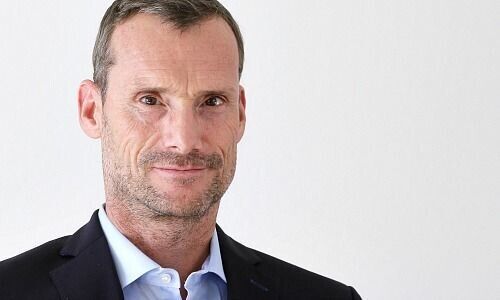The Swiss bank goes through the motions rounding up the usual suspects amid twin scandals, but displays a remarkable lack of humility about the root problem as well as an inability to change, finews.com editor Peter Hody writes.
The barrage unleashed by Credit Suisse this morning includes two top management exits and a host more several floors lower, an 900 million Swiss franc ($958 million) loss for the quarter, and top management and Chairman Urs Rohner relinquishing some pay.
The Swiss bank also wisely chose to skip a so-called «décharge» or formal backing for its board and management, when it next faces shareholders on April 30. It also slashed their dividend to roughly one-third of what it had originally promised and stopped buying back shares.
A «Formidable Institution»?
Credit Suisse's board and CEO Thomas Gottstein would have you believe that they've done what is needed to tackle the crises. It is treating the loss of 4.4 billion francs on a single client, Archegos Capital Management, as well as its involvement with now-insolvent Greensill entities as isolated events which, per Gottstein, will be carefully, seriously investigated and lessons drawn.
What emerges instead from the horrific Archegos hit in the subtext of Credit Suisse's disclosure is that it is a «formidable institution». This tone-deaf lack of humility or concessions amid the destruction of value on Gottstein's watch is remarkable. Credit Suisse is effectively packing an historic trading loss in the vestiges of its history, arguing that the two missteps aside, the bank is doing superbly.
Carving Out Funds Arm
To be clear, minus Bill Hwang's Archegos family office/hedge fund, Credit Suisse would've posted record pre-tax profit of 3.5 billion francs (remember its buoyant March 16 trading statement?). Revenue at its investment banking arm was up more by more than half on the year, business with wealthy clients was doing well, a global trading solutions unit and its activities in Asia-Pacific continued to grow and credit losses were manageable.
It didn't mention that it is splitting its asset management arm out from under its private bank for the wealthy, after what is presumed to be another billion-dollar hit due to the Greensill supply chain funds. On Tuesday, Credit Suisse promised a separate update on repayments from the four funds shortly.
Highly Successful, If Not For...
The emphasis instead on record performance and an adequate cushion on capital appears to be Credit Suisse's attempt to sell its clients, investors, stakeholders, and employees on the notion that it is extremely successful (barring two separate and very different «isolated» events, that is).
The two events display ample similarities in their inadequate risk management as well as their failure to properly address potential conflicts of interest in a tightly-linked «one-bank» strategy of offering various different services and activities to the same customer, from different parts of the bank.
What Other Risks May Emerge?
Investors should be asking themselves what other risks Credit Suisse took in the first quarter to generate the record result, before the missteps? And why appoint Christian Meissner, an investment banker who left his high-profile role with Bank of America three years ago reportedly because he was increasingly hamstrung by the U.S. bank's waning appetite for risk?
The first question is impossible to answer given the lack of transparency in Credit Suisse's reporting; ten days after Archegos began hemorrhaging, the bank appears to have identified the maximum potential hit. Undeniably, the investment banking's culture is still deeply entrenched in a risk-taking culture which reliably provides major blow-ups: before Archegos, Credit Suisse investors had to stomach a billion-dollar write-down on illiquid credit positions in 2016.
Predictable Response
Its response has become predictable: a top executive is forced to leave, the matter investigated before the bank returns to business as usual. Thus the second question – Meissner's appointment – is easier to answer: the 51-year-old Austrian will run Credit Suisse's investment bank because he's at the scene already and is unafraid of risk-taking.
The fatal error Credit Suisse and its board make over and over again is an unwillingness to fundamentally rethink its strategy or business model. After an annus horribilis of «singular» events like Greensill, Archegos, York, insurance-linked products, and residential mortgage-backed securities which lay bare its deficiencies, Credit Suisse is overdue for some introspection.
Widening Divide To Rivals
Even if not given to self-reflection, Credit Suisse's board cannot ignore the deepening competitive divide between its U.S. rivals and now increasingly to its European ones: the Swiss bank isn't among the leading banks in any of its three main disciplines, which should prompt a re-evaluation.
This, of course, isn't possible – another fatal error. Urs Rohner will continue to steer Credit Suisse for another three weeks, until the arrival of António Horta-Osório from Lloyds. After a lost decade under Rohner, what are another three weeks of paralysis for Credit Suisse shareholders?



































